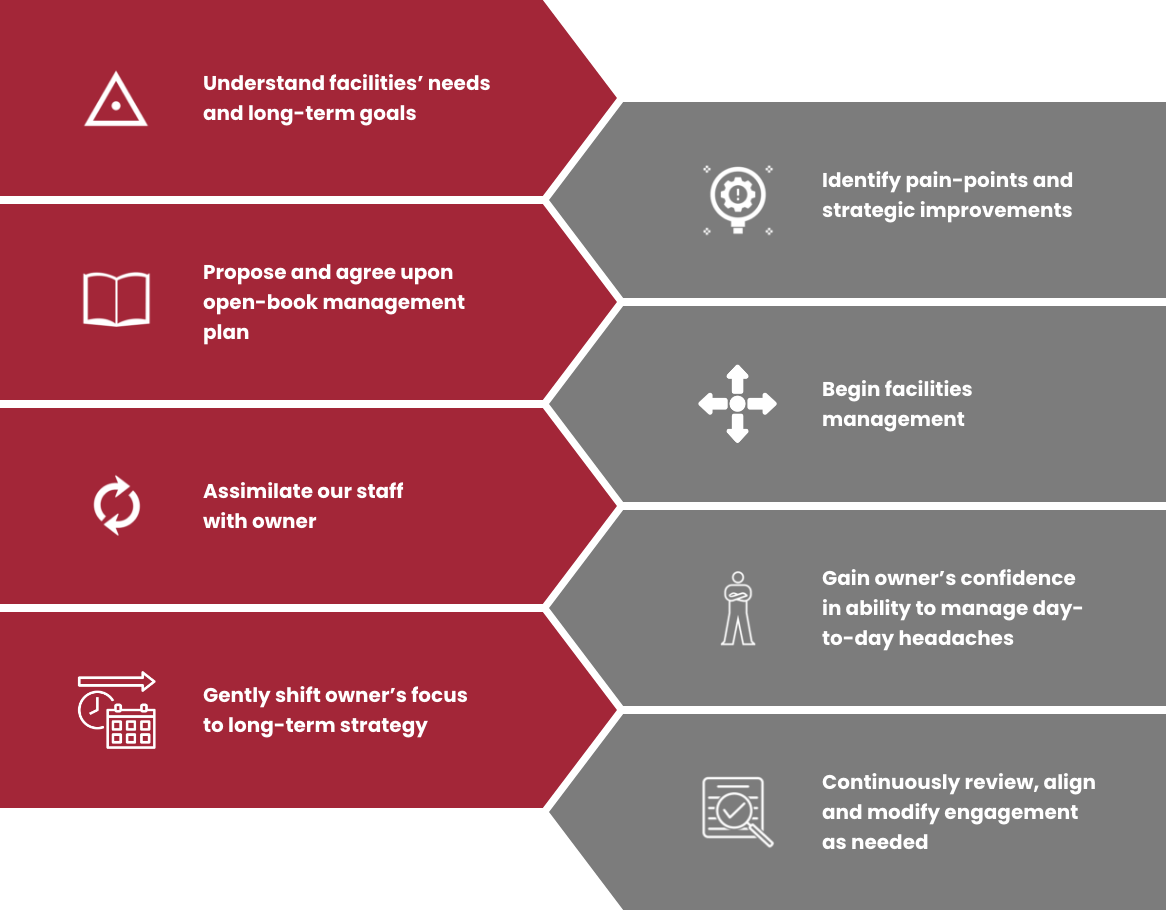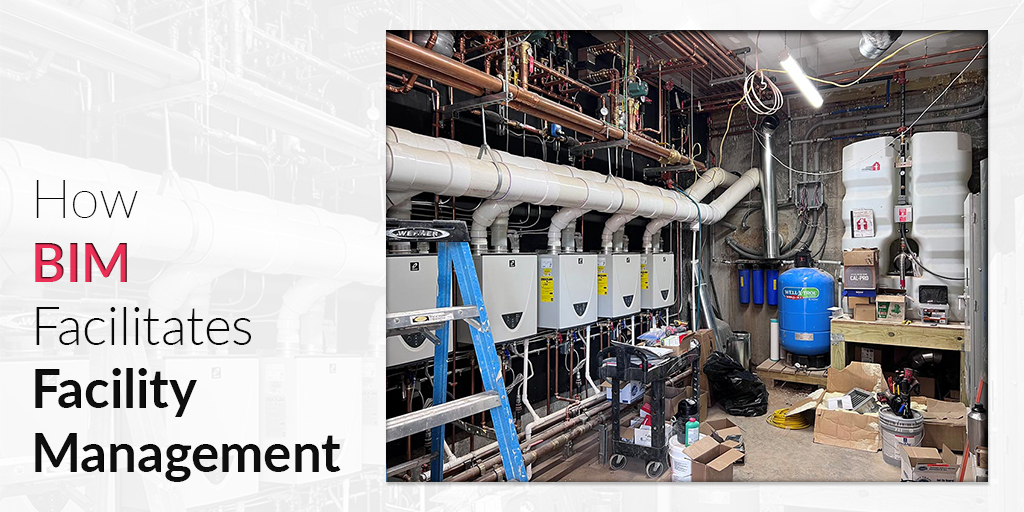Key Patterns Forming the Future of Center Management in 2024
As we look in advance to 2024, the landscape of facility management is poised for significant makeover, driven by several essential trends. The assimilation of clever building technologies and a shift in the direction of data-driven decision-making pledge to boost functional efficiency while prioritizing sustainability in technique.
Smart Structure Technologies

Smart structure modern technologies encompass a broad selection of systems, including intelligent lighting, cooling and heating controls, and safety and security systems. By integrating these systems, center supervisors can check and adjust parameters in real-time, leading to considerable decreases in power waste and operational expenses. Wise sensors can spot tenancy degrees and adjust lighting and temperature as necessary, making sure that power is only used when essential.
Additionally, these technologies promote enhanced data collection, enabling companies to track usage patterns and identify opportunities for additional improvements. The application of wise structure technologies not just contributes to sustainability objectives yet also develops healthier job settings that can improve worker productivity and complete satisfaction.
As we relocate into 2024, the adoption of wise structure modern technologies will likely increase, mirroring a wider change in the direction of even more intelligent, receptive, and lasting facility monitoring practices.
Data-Driven Decision Making
Increasingly, organizations are leveraging data-driven decision making to boost center administration methods. By utilizing information analytics, center supervisors can acquire actionable insights that substantially enhance operational efficiency and source allotment. The assimilation of advanced modern technologies, such as IoT sensing units and real-time surveillance systems, enables the collection of substantial quantities of data on structure efficiency, tenancy prices, and power intake.
This wealth of info allows facility supervisors to determine fads, predict maintenance needs, and proactively address concerns before they rise. Anticipating analytics can anticipate devices failings, decreasing downtime and repair work costs. Furthermore, information visualization tools assist in better communication amongst stakeholders, guaranteeing that informed choices are made collaboratively.
Additionally, data-driven methods enhance strategic preparation by making it possible for center managers to evaluate the performance of existing techniques and make educated selections regarding financial investments in innovation or infrastructure. As organizations progressively focus on operational quality, data-driven decision making is poised to end up being a keystone of effective center management techniques in 2024 and beyond. Eventually, the capacity to take advantage of data successfully will equip organizations to create much more efficient, efficient, and resistant facilities.
Sustainability and Eco-friendly Practices
The emphasis on data-driven choice making normally straightens with the growing emphasis on sustainability and eco-friendly practices within center management. As organizations progressively focus on ecological duty, facility supervisors are leveraging analytics to optimize resource use, lower waste, and minimize carbon footprints. This strategic approach enables the combination of energy-efficient systems, such as LED lights, wise a/c controls, and eco-friendly energy resources into center procedures.
Additionally, the execution of lasting methods expands beyond energy consumption. Facility managers are promoting and embracing environmentally friendly materials recycling efforts to create a round economic climate within their centers. This not just enhances the ecological account of the company yet also promotes a culture of sustainability amongst employees.
Compliance with ecological laws is one more vital aspect driving the fostering of environment-friendly techniques. By making use of information analytics, center supervisors can keep track of compliance metrics and recognize areas for enhancement, making certain adherence to global and neighborhood sustainability criteria.
Hybrid Job Designs
A considerable change towards hybrid job designs is reshaping the landscape of center administration in 2024. This paradigm integrates remote and in-office work, demanding a reevaluation of space use, resource allocation, and employee involvement methods. Organizations are progressively identifying the relevance of versatile workspaces that provide to diverse needs and preferences.
Center managers should adapt by implementing versatile workplace designs that sustain collective initiatives while supplying areas for focused work. This consists of the assimilation of innovation to promote smooth communication helpful hints and collaboration amongst remote and in-office employees. Smart building solutions, furnished with sensing units and analytics, permit for real-time surveillance of area use, making it possible for companies to optimize their environments efficiently.
Furthermore, crossbreed work versions stress the requirement for efficient center management that focuses on worker experience. In essence, the hybrid job design is reinventing facility administration, urging a positive method to fulfill the progressing needs of the workforce.
Enhanced Occupant Health
As companies accept hybrid job versions, a heightened emphasis on owner wellness is ending up being integral to facility management strategies. Facility Management. This change identifies that a healthy and balanced and satisfied workforce straight affects productivity and retention prices. Facility managers are currently prioritizing environments that advertise psychological and physical wellness, integrating components article such as all-natural lights, biophilic style, and accessible wellness resources

Modern technology plays a critical function in this evolution. Smart structure systems can keep an eye on environmental aspects and change setups in real-time, making sure optimum convenience degrees - Facility Management. Additionally, comments mechanisms, such as occupancy sensing units and employee surveys, enable center supervisors to constantly refine wellness efforts based on passenger demands.

Conclusion
In 2024, the future of center management will certainly be considerably affected by the combination of smart structure modern technologies and data-driven decision-making, cultivating boosted operational effectiveness. Sustainability initiatives will certainly prioritize green practices, while the emergence check out this site of crossbreed work models will require flexible workplace layouts. An increased focus on occupant wellness via innovative A/c systems and biophilic layout will add to much healthier work settings. These trends jointly emphasize the progressing landscape of facility administration in action to contemporary challenges and chances.
Facility managers are embracing green materials and promoting recycling campaigns to develop a circular economic situation within their centers.A substantial change towards crossbreed work models is reshaping the landscape of center management in 2024.In addition, hybrid work versions emphasize the demand for reliable center administration that focuses on worker experience.As organizations accept hybrid job designs, an enhanced emphasis on owner wellness is ending up being indispensable to center administration approaches.In 2024, the future of center monitoring will be significantly influenced by the integration of smart structure technologies and data-driven decision-making, promoting improved functional efficiency.